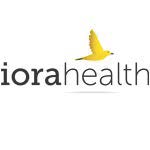
This is the Iora primary care team that’s bringing humanity to healthcare at Dartmouth Health Connect.
The fee-for-servic e structure of conventional health care fosters delivery of isolated care transactions rather than integrated and relationship-nurtured building blocks of patient self-empowerment. This results in patients’ disengagement from their own wellness promotion and illness management, with downstream adverse impact on health outcomes, care experience, and service utilization. The Iora Health primary care team has re-conceptualized staff and patient roles, re-designed care processes, and re-built both its financing model and its informational infrastructure, to achieve a deeply engaging new model of high impact relationship-centered care. We have specified three ambitious but measurable objectives for our initiative:
e structure of conventional health care fosters delivery of isolated care transactions rather than integrated and relationship-nurtured building blocks of patient self-empowerment. This results in patients’ disengagement from their own wellness promotion and illness management, with downstream adverse impact on health outcomes, care experience, and service utilization. The Iora Health primary care team has re-conceptualized staff and patient roles, re-designed care processes, and re-built both its financing model and its informational infrastructure, to achieve a deeply engaging new model of high impact relationship-centered care. We have specified three ambitious but measurable objectives for our initiative:
- Increase clinical quality, defined as achievement of precise clinical goals co-negotiated by patient and care team.
- Reduce utilization of expensive (and often avoidable) downstream tertiary care services, including hospitalizations and emergency department visits.
- Enhance quality of patients’ experience of care, through achievement of not merely “satisfaction” but true “delight” with relationships and service.
PROBLEM IDENTIFICATION & SOLUTION
An essential first step in our program was re-structuring of our finance model. Our patients are employees of a local College which bears ultimate responsibility for health care costs. The College has agreed to pay us a set per-member-per-month rate in exchange for all primary care interventions. Traditional fee-for-service is totally eliminated! This simplified arrangement permits us to turn attention fully to the needs of patients themselves, with whom we partner to address health priorities.
Another central innovation is our assignment of a personal health coach to every patient. Coaches are trained not only in “first order” principles of exercise and diet, but also in “high order” engagement skills of motivational interviewing, shared decision making, goal negotiation, and partnership formation. Patients describe their coach relationships as truly transformative, precisely because these provide a supportive platform for patients’ own identification and achievement of specified goals.
Our innovative business and staffing model permits us to re-direct interventions away from traditional “business” requirements of isolated office visits, and instead toward the genuine needs of patients, creatively employing whatever resources are most appropriate to each context. Thus, while some patient-coach encounters involve office-based motivational interviewing and shared decision-making, others manifest as a “walking visit” on the community green, or as a “food shopping” visit at the local grocery (where patients learn to plan a week of affordable and healthful meals). In addition, staff engage with patients via email, texting, and video “visits.” We have also leveraged patient and staff creativity to develop unique group-based interventions. One example is our innovative “Ladies’ Night,” during which women co-participate in a shared evening where PAP smears and breast exams are made more welcoming by concurrent group activities, refreshments (strawberries, cheese, chocolates!), and even massage. Participants are delighted by this recurring event! Other examples are discussed below.
PATIENT & FAMILY INVOLVEMENT
Patient engagement, empowerment, and self-ownership of care are foundational elements of our model. Many patients speak of Dartmouth Health Connect as “my practice,” meaning not merely that this is the practice where they receive care, but that this is a practice they conceptually “co-own.” This value is manifest in numerous forms:
- We sponsor a “Patient Advisory Group,” comprised of practice members whom we convene, over dinner, on a quarterly basis. We invite these representatives to share what is the “word on the street”regarding community needs, what is working well here, what needs improvement. We co-brainstom innovations and invite group testing of new offerings (such as our web-based self-scheduling tool).
- We run regular patient groups (to which family and friends are invited) on diverse themes, toward realization of self-management goals. These include a weekly woman’s weight management group and weekly mindfulness meditation group, among others. Patients now feel comfortable not only participating in, but also leading, several of these regular groups.
- Leveraging the power of relationships, we have sponsored “community connection” events, where groups of patients meet off-site and engage in activities like game night or trips to a local arboretum, with agendas generated by patients themselves.
COMMUNICATION INITIATIVES
Coordinated communication plays an essential role in our engagement of patients. We send a post-visit email to patients at end of each day, seeking feedback to three questions: how likely are you to recommend our practice to friends or co-workers (responses to which query are integrated into our Net Promoter Score, see Section 3.2 below); what aspects of care have worked well for you; what aspects can be improved? We review (and act upon!) responses every morning during team huddle, establishing a constant link between patient experiences and program operations. Our quarterly Patient Advisory Group meeting, described above, and also our monthly practice newsletter, provide further communicative and invitational bridges. In addition, our self-grown electronic health record features a robust “patient app” that supports rapid HIPAA-secure communication between patients and their care team. This offering complements our regular implementation of scheduled phone, email, and even video visits.
INSPIRING STAFF TO FOCUS ON PATIENTS & FAMILIES
We devote special attention to hiring staff with inherent “service” sensibility, and we have nurtured this native inclination through intentional fostering of a practice culture that prioritizes patient empowerment and engagement. We huddle as a team for a full 30 minutes each morning, during which time (on a daily basis!) we enthusiastically highlight and celebrate “small victories” of patient empowerment. Team members are invited to share these narratives spontaneously, and this very sharing reinforces the primacy of our patient-focused values. Indeed, as described in solution description above, the entire emphasis of our coach training is upon attentiveness to patient’s preferences, and to elicitation of patient’s inherent capabilities. Immersing our staff in principles and practices of motivational interviewing, shared decision making, goal negotiation, and partnership formation, assures that patient priorities remain our own core priorities as well.
TRANSFORMATION OF CARE DELIVERY
Below, we share data that demonstrate (1) improved clinical quality, (2) reduced cost, and (3) delight with care experience. These are recognizable as the three components of the Institute for Healthcare Improvement’s “Triple Aim.” But our aspirations (and we believe the promise of our initial achievements) are directed even higher, toward a “Quintuple Aim” which also incorporates (4) gratifying team experience and (5) financial sustainability. These latter domains warrant explication: Visitors comment upon one special feature of our practice that is uncommon in modern healthcare: All members of our team are visibly happy! This happiness derives from gratification inherent in creatively empowering others, and doing so in a manner unencumbered by constraints of traditional healthcare paradigms. The model that supports this vocational sustainability also engenders financial sustainability. Our funding structure permits optimal alignment of clinical processes, patient engagement, and operational efficiencies; as a result, our 2015 budget is “in the black.” Better outcomes, smarter utilization, engaged patients, happier staff, and financial sustainability: we would not believe such a combination to be achievable were we not, in fact, achieving it ourselves. We feel fortunate to participate in a transformation of care that parallels transformation in our patients’ own lives.
IMPACT ON PATIENT EXPERIENCE & OUTCOMES
Quantitative and qualitative data, reflecting our three objectives described in the introduction, demonstrate the positive impact of improved patient engagement:
Clinical quality: The proportion of our hypertensive patients who have achieved guideline-defined control has climbed from 64% in 2013 to 86% in 2016.
Utilization: When compared with matched control patients outside our practice, our own patients enjoy a 35% reduction in hospitalizations and 23% reduction in emergency room visits.
Delight with care experience: Our Net Promoter Scores (NPS), derived from regular surveys to patients, far exceed industry standards. The index can range from -100% to +100%. Best-in-field health providers score in the +30% range. Remarkably, our own practice has maintained an NPS score of +89%!
Qualitatively, we regularly receive patient testimonials like the following:
- “Today I have been deeply touched by sincere compassion from people who are gifted to understand thehighest value of relating human to human – they can heal.”
- “[My team] cares about having a long term relationship with me, to help me … become the healthy personI know I’m capable of becoming. It’s up to me, but it’s really nice to know we share a common goal.”
- “I’ve never been happier with my health care.”




